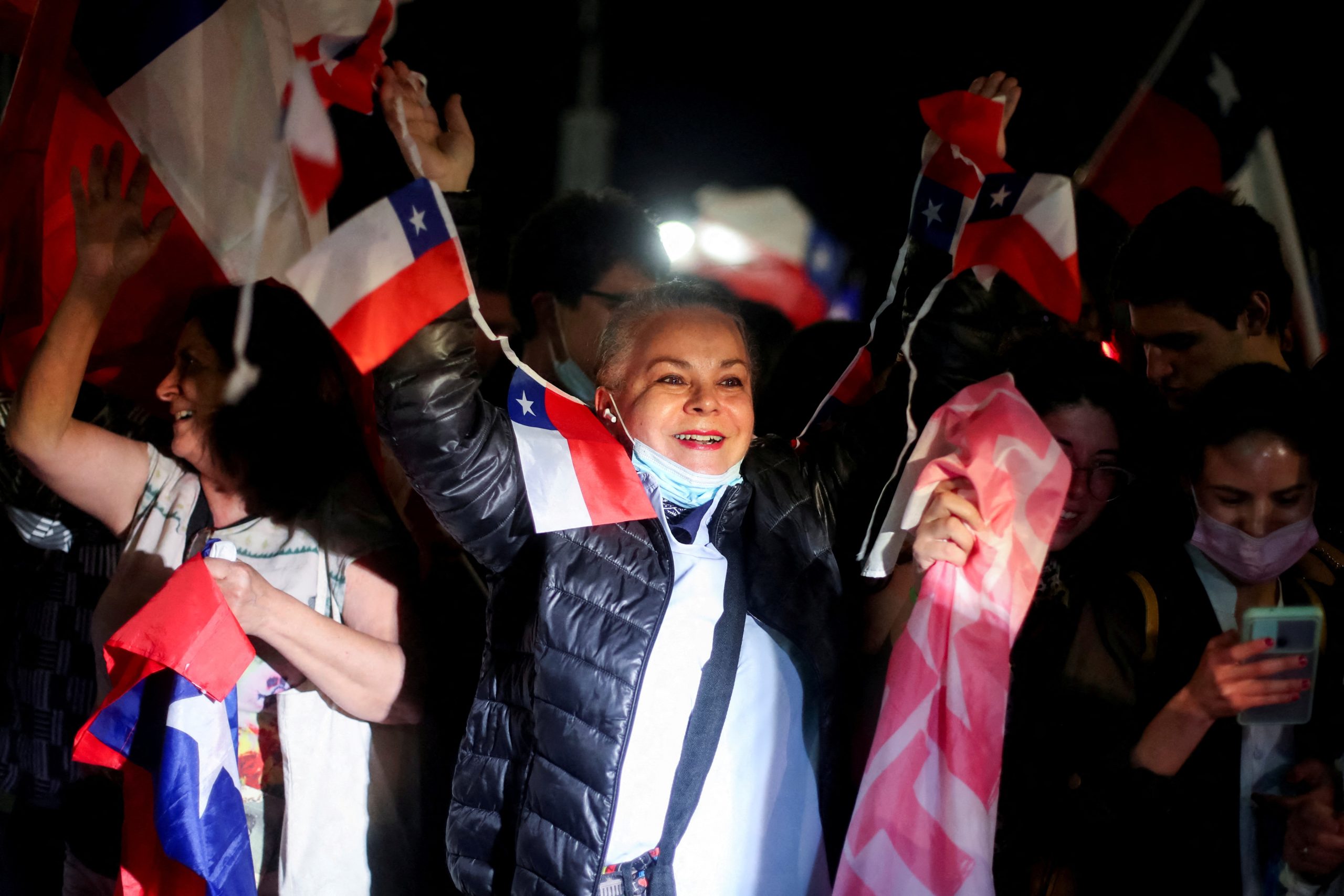
[elfsight_social_share_buttons id=”1″]
Chilean President Gabriel Boric said his government will go back to the drawing board to redraft its Augusto Pinochet-era constitution after his proposed new constitution was overwhelmingly rejected by voters in a historic referendum vote against woke ideology and socialist governance on Sunday.
Boric on Monday held meetings with political and social leaders over how to salvage plans for a new constitution, bruised by the vote that saw some 7.9 million Chileans reject what many have called a “leftist wishlist” proposal at the polls this weekend. Only 4.9 million voted in favor, a larger-than-expected landslide loss for the far-left government.
With mandatory voting driving a strong turnout of some 13 million people, the reject camp overturned momentum from a 2020 referendum when 80% of Chileans had voted in favor of drafting a new constitution, though only 7.6 million people voted in that election.
Writer Steve Cortes voiced his support for the defeat.
Some solid news out of Latin America as Chile overwhelmingly rejects a liberal manifesto constitution. pic.twitter.com/ykAqFQm6PZ
— Steve Cortes (@CortesSteve) September 5, 2022
President Boric attempted to sound optimistic Monday.
“Beyond the legitimate differences, I know that the desire for dialogue and meetings prevails. We continue and will move forward,” Boric wrote on Twitter on Monday after having given a conciliatory speech on Sunday night calling for unity.
The proposed constitution reads like a woke, communist wish list. According to National Review, the hundreds of new points the proposal would have enacted included:
- a national right to abortion. Under a 2017 law, abortion is legal in Chile “only when the mother’s life is at risk, if the fetus would not survive the pregnancy, or during the first 12 weeks if the fetus is the product of rape.” Prior to 2017, no abortion was legal in the country.
- an unequal justice system, giving special rights to “indigenous” people
- an effective end to private healthcare
- an effective end to private education
- allow the federal government to confiscate citizens’ pension savings
- “allow Chileans the right to live as their authentic identity ‘in all its dimensions and manifestations, including sexual characteristics, gender identities and expressions’”
- effective enshrinement into law of forced “diversity, inclusion, and equity” principles in hiring and employment
With the rejection, Chileans likely saved their country from becoming the next Venezuela, where decades of socialist economic control by the government has led to a humanitarian and refugee crisis that is being compared to that of war-torn Ukraine.
The reject camp won in almost all districts of the country, the world’s top producer of copper and the No. 2 for lithium, where decades of relative conservative and market-led policy were shaken up in 2019 by fiery protests against inequality that many blamed on the Pinochet-era constitution.
The vote had been seen as something of a referendum also on 36-year-old Boric, who came into office in March promising economic and social reforms, though has been hit by high inflation levels, economic worries, and a weak peso currency.
Chile’s markets rallied on Monday as investors cheered the result, which some said will force any new constitution text to be more moderate and to involve more centrist and conservative groups in its redrafting.
Boric, who led a broad leftist alliance when winning the election, said on Sunday night that he was planning to reshape his cabinet in the wake of the defeat, which could also see him bring in more moderate ministers.
Center-left and right-wing politicians that opposed the new constitution have expressed interest in working with the government to draft a new text, while others have suggested amending the current constitution through Congress.
Copyright 2022 Thomson/Reuters. Additional reporting and editing for FISM News by Jacob Fuller.
